Mission Rose Pasta’s Pandemic Rise
After Decades of Noodle Making, Michael Glazer’s Products Are Ready for Santa Barbara
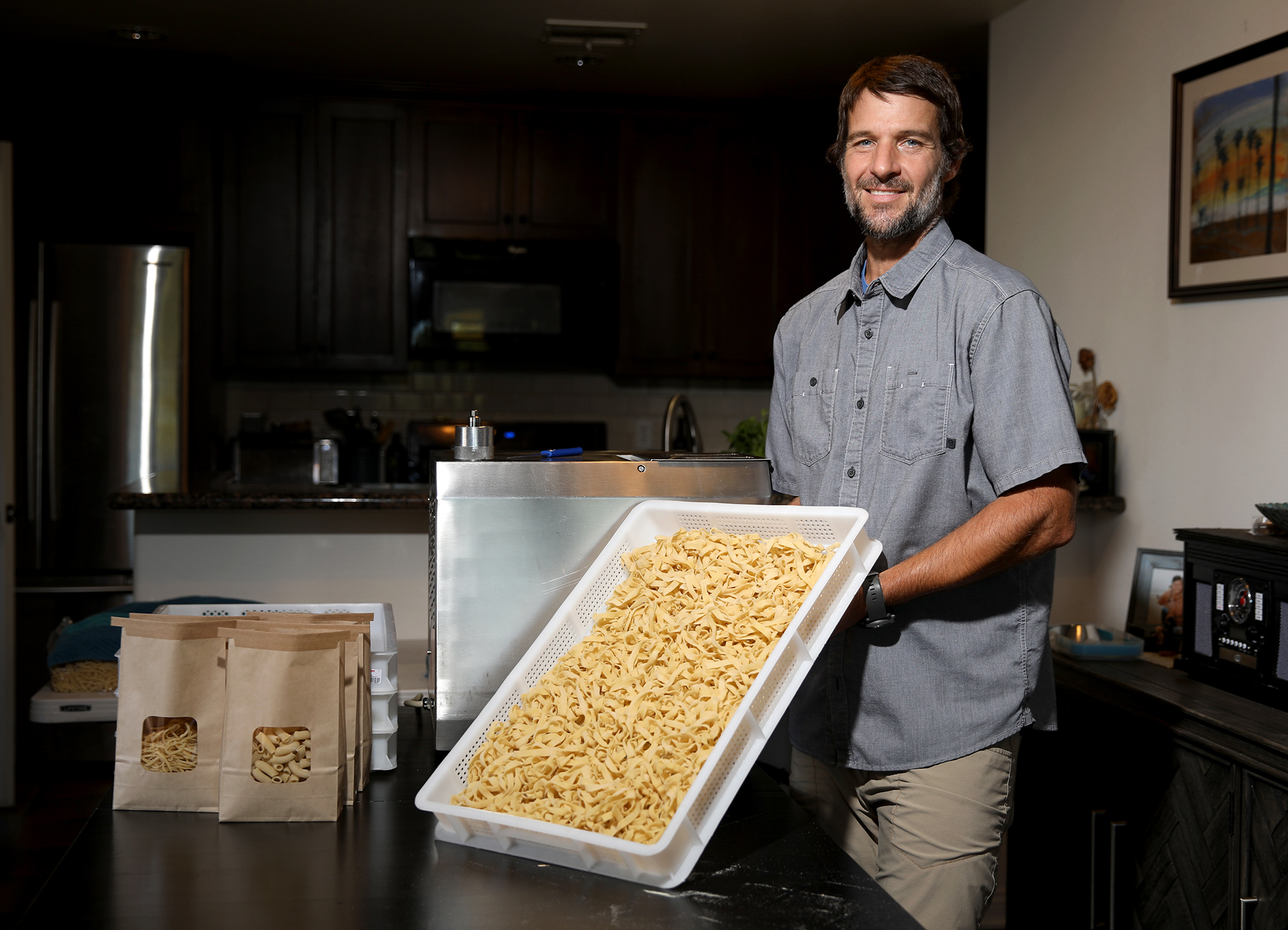
With just organic semolina flour and water as his recipe, Mission Rose Pasta founder and chief noodler Michael Glazer is really not sure what makes his fusilli, casarecce, and dozen other pastas so delicious.
“It’s love, Matt, it’s love,” he tells me over the phone with an audible smile. “I have no idea what makes it good. But it’s time-tested. It’s been the same process for years and years and years.”
Those of us lucky to know Glazer and his wife, Val Selvaggio, fell in love with their fresh, handmade noodles years ago. Many others got a taste through his pop-up lunches and dinners at a commercial kitchen in the Funk Zone and the former Goodland Kitchen in Old Town Goleta. Fans who go back to the glorious Isla Vista days of the late 1990s would recall the earliest incarnation, when Glazer owned Pasta 101 at the corner of Embarcadero del Norte and Seville, a bottlecap’s toss from SOS Liquors.
Get the top stories in your inbox by signing up for our daily newsletter, Indy Today.
But only during the COVID-19 pandemic, when we’re mostly eating what we prepare ourselves at home, did Mission Rose Pasta mature into an official packaged goods company. Renting space in Duo Catering’s East Haley Street kitchen, where he houses a brand-new noodle machine that he bought after 20-plus years of using his original one, Glazer now offers a pasta club for weekly or monthly deliveries. The ever-changing products — including about 15 different shapes as well as creams, butters, and sauces — can be ordered through Farm Cart Organics, Local Harvest Delivery, Farm Box Collective, and Plow-to-Porch, and there are pickup stations in the works, too.
The food business runs deep in Glazer’s blood. Growing up in Philadelphia, his family owned a food distribution warehouse. “We had this massive building in a super gritty, gnarly part of town,” he explained. “It was a playground for us.” He recalls hanging with the ex-cons who worked the conveyer belts and laughing at the less-than-flattering graffiti about Uncle Joel scrawled on the bathroom stalls.
In 1993, he moved to Santa Barbara to attend City College, but really to see more Grateful Dead shows. Living on Del Playa in I.V., he tended to a massive garden, often with Selvaggio at his side. “Sourcing food from that garden was the beginning of the movement for me,” he explained, “understanding how to grow your own food and then enjoying the rewards and flavors from that.”
He started working at Pasta 101 in 1996, and then bought the business in 1998, but openly admits that lots of drinking led to its demise by 2001. (He’s long since traded booze for a running habit.) He then worked at “almost too many restaurants to count and remember,” including a turn at Epiphany on West Victoria Street with Chef Michael Goodman, who’s since become an architect. “That was definitely a profound six months, or however long it was,” said Glazer, who considers that his first fine-dining work. “It helped shape who I became and even who I am now.”
In 2002, the couple moved to Georgia, where Glazer attended culinary school while also working at Woodfire Grill and the Ritz-Carlton in Atlanta. “It seemed like that hands-on experience was far outweighing the classroom knowledge,” said Glazer of why he didn’t get a degree.
They came back through Santa Barbara on a way to a wedding in 2006, and Glazer recalls visiting the Tuesday farmers’ market on State Street. “We yearned to get back,” he said, so they did that year.
He was the opening chef at Couchez, the bizarre eat-fancy-food-and-drink-cocktails-on-beds concept that didn’t last long in the Funk Zone. “Yeah, I was part of that disaster,” admitted Glazer, who then got another short-lived gig at the Four Seasons Biltmore just as the recession was rearing its head. “I don’t stay very long at jobs,” he said. “I get what I can get out of it, and then move on.”
In 2010, after taking a year off to watch his newborn son, Luca, Glazer started making pasta again at a commercial kitchen on East Yanonali Street — much of it went to Los Angeles caterers — while also serving lunch and dinner. That was the official birthplace of Mission Rose Pasta, but he moved to the Goodland Kitchen in Goleta in February 2018. Pasta was the core of his weekend dinners there, too, in part for economic reasons. “I never knew what was going to happen at dinner,” he said. “Maybe there’d be two people, maybe there’d be 20, but it was easy enough to make pasta.”

He got the boot from that location last year to make way for Lemon & Coriander — which opened in December but didn’t survive the pandemic — and his catering gig for Sonos stopped on March 10 when the company initiated its own quarantine. When shelter-in-place orders came down to the rest of us, friends were instantly knocking on his door for fresh pasta. I was one of the knockers, as the pasta is incredibly easy to cook — just a few minutes in salted boiling water, even when frozen — and fascinatingly delicious. My kids can’t get enough.
I recall my first taste maybe a decade ago. I wondered how good pasta would be, and the noodles were a revelation, even just with butter, something so simple yet satisfying in texture and flavor. Now I’m incorporating Mission Rose Pasta’s sauces, too — pasilla chile cream, caramelized onion and applewood bacon butter, and tomato and herb, to name just three — often with my own slight enhancements, such as mozzarella chunks in the roasted red pepper cream or Calabrian chile butter on steamed corn.
“The sauce potential is endless,” said Glazer, who also makes flavored pastas, such as smoked paprika fettuccine and lemon-pepper linguini. “I’ve never found anybody who doesn’t like the pasilla chile cream, except my son.”
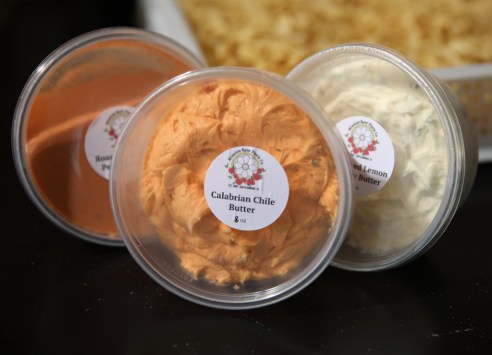
His business started booming in March, when Farm Cart Organics said they could move a lot of his pasta through their produce delivery service. “Since then, it’s snowballed,” said Glazer. “Clearly, there’s a desire for it.” Other services upped orders significantly, and Mission Rose Pasta is also delivering in Los Angeles.
In April, after 21 years of using the same machine, whose bronze extruder adds to the pasta’s slightly porous, adhesive texture, Glazer purchased a new device. It’s now cranking out 90 percent of the noodles, except for a couple styles he has to make on the old one.
After years of threatening to “really do this,” Glazer is happy to have a bustling business. But he’s taking it all in with grains of shutdown salt. “Is it an anomaly?” he wondered aloud. “How many people who are getting delivery are going to continue getting boxes when things return to normal?” At this point, who knows anything?
Meanwhile, the noodles are flowing, and there’s always a challenge to deal with, whether it’s the heat, humidity, or something more mysterious in the air that makes one pasta work better than another on any given day. Said Glazer, “Every batch for me is a learning opportunity.”
See missionrosepasta.com.
Every day, the staff of the Santa Barbara Independent works hard to sort out truth from rumor and keep you informed of what’s happening across the entire Santa Barbara community. Now there’s a way to directly enable these efforts. Support the Independent by making a direct contribution or with a subscription to Indy+.

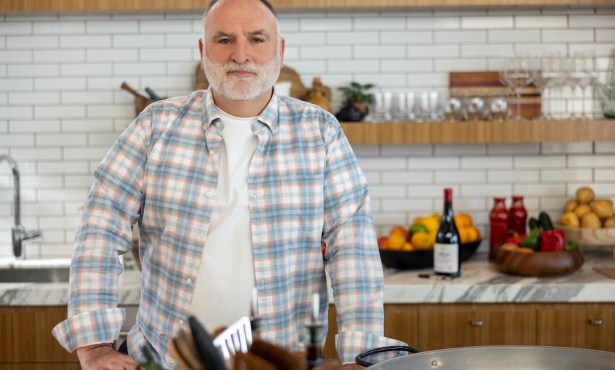
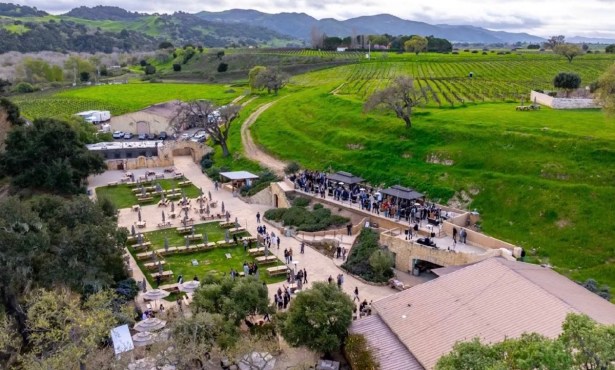
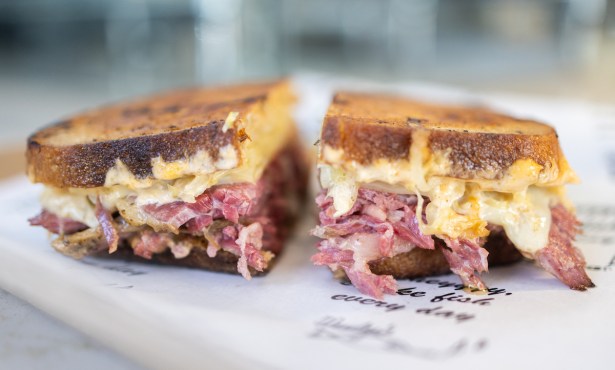
You must be logged in to post a comment.